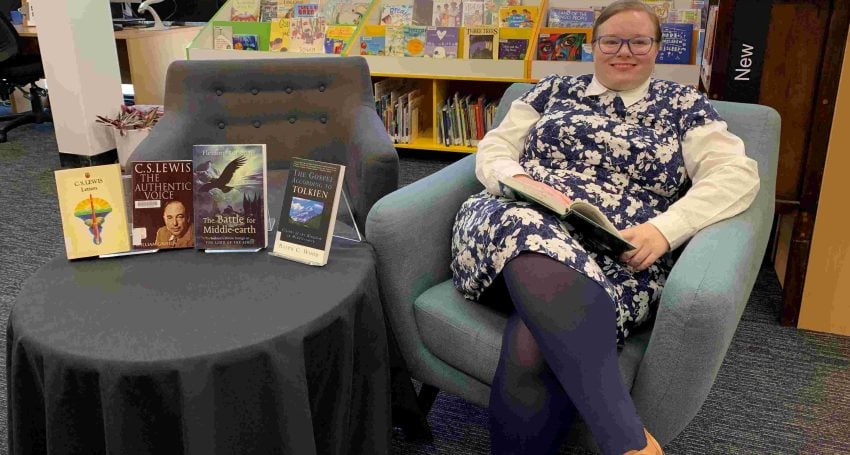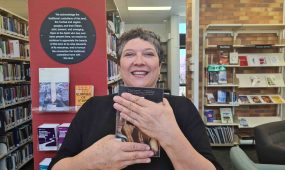The book I have given away the most and why: Sheilagh Ilona O’Brien
Faith book reflections
“Stories have immense power to shape our lives and values. This book is an integral part of my childhood memories,” says Dr Sheilagh Ilona O’Brien from St Francis College

JRR Tolkien’s The Hobbit (1937) centres the values of courage, sincerity and kindness that I want the children in my life to foster. These values are embodied in my Christian faith. Tolkien’s bestseller shows children how to be a true friend by caring more about their community and the people in their life over money, wealth or power.
Tolkien was a deeply committed Christian and played an important role in the conversion of his colleague, friend and fellow author, C.S. Lewis. Tolkien once wrote that the purpose of his life was to “increase according to our capacity our knowledge of God by all the means we have, and to be moved by it to praise and thanks”.
Advertisement
Stories have immense power to shape our lives and values. This book is an integral part of my childhood memories. My mum would read first The Hobbit and then its sequel The Lord of the Rings to my youngest brother and me at bedtime. Often at the end of a chapter we discussed what had happened, what we liked and what we felt about the story’s characters and events.
The story is an adventure into danger with wizard Gandalf, hobbit Bilbo Baggins, and exiled dwarven king Thorin Oakenshield and his 12 companions. Thorin is seeking to reclaim his ancestral home, the Lonely Mountain, and the treasure within it from a dragon — Smaug.
Through a series of adventures, Bilbo demonstrates mercy, courage and a deep love of good company — and good food!
For those who have not read the book there are some spoilers ahead!
It is the friendship between Thorin and Bilbo that most shaped my values as a child. During the story, Thorin becomes ill with a passion for his ancestors’ treasure. Bilbo tries to act as a peacemaker, and he and Thorin have a falling out before the final battle.
Advertisement
Bilbo’s courage to do what is right, even though it is hard, and squarely facing the consequences of his actions are important values for children to learn.
Bilbo and Thorin reconcile at the end of the story when a dying Thorin realises his error and tells Bilbo: “If more of us valued food and cheer and song above hoarded gold, it would be a merrier world.”
I mentioned this quote to The Rev’d Canon Sarah Plowman recently and she sent me a meme with a quote from the late Rachel Held Evans: “The church is God saying: ‘I’m throwing a banquet, and all these mismatched, messed-up people are invited. Here, have some wine.’”
Tolkien’s stories don’t tell kids what to think or feel, they allow them to imagine themselves being selfless and courageous (while afraid) and emphasise that it is relationships that matter, not material things.
Small “unimportant” people can courageously stand up to the great and the powerful when they lead with love: “Little Children, let us love, not in word or speech, but in truth and action (1 John 3.18 NRSV).”
Editor’s note: If you would like to share with other readers what faith-related book, including those with theological, spiritual, ministry, Church history or justice themes, you have given away (or referred) the most and why, please email the Editor, Michelle McDonald, and she will let you know what is needed.





